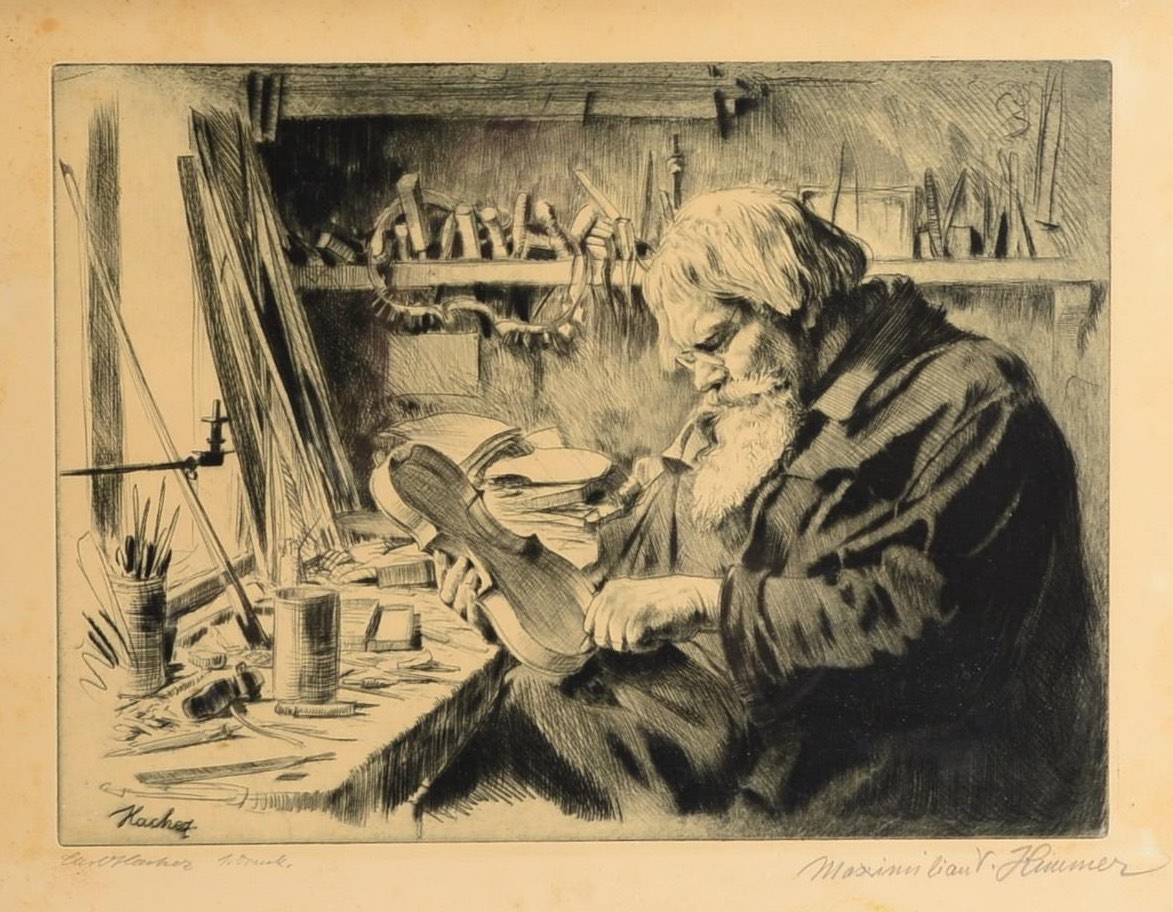After Paris and London, Berlin was the third urban center of violin making. There is mention of Berlin’s first violin maker, Peter Rutte, in 1615 in a document put together by the Elector Johann Sigismund. That said, it wasn’t until the mid-19th century that the city became a noteworthy center of violin making. Industrialization resulted in a population increase, which meant there were more people in general, and more people eager to learn music and to participate in a varied and dynamic cultural scene.
Maximilian Vitalis Himmer was born in New York on January 13, 1871, the son of German immigrants, and returned to Germany with his parents at a very young age. He attended the Josephinum grammar school in Hildesheim, which was particularly musically oriented. Owing to his prodigious talent, he was persuaded by his violin teachers to enroll in violin studies at the Akademie für Musik at age nineteen. There, he studied under Joseph Joachim and Heinrich de Ahna, the second violinist of the Joachim Quartet.

Maximilian Himmer in his workshop in Berlin.
Unfortunately, Himmer was forced to give up professional violin playing in 1896 at the age of 25 due to severe arm paralysis. He subsequently trained as a painter at Berlin’s Akademie der Künste. Although he tried his hand at painting, he remained devoted to the violin and became increasingly involved with the violin making trade from about 1905 onwards. Books including Apian-Bennewitz’s The Violin (1892) and August Riecher’s The Violin and its Production (1893), published only a few years before Himmer’s accident, certainly helped him in learning the art of violin making. So Himmer can rightly be described as the best Berlin autodidact in the violin making trade. In fact, he was probably the only autodidact in Berlin who also received great recognition from contemporary “trained” violin makers such as Otto Möckel and Michael Dötsch. Himmer himself claimed throughout the early-1900s to have rediscovered the crucial construction secret of the old Italian violins. Thus far, it has not been possible to find out exactly what he meant by that. He just vehemently insisted that the violin varnish was absolutely not one of them.
